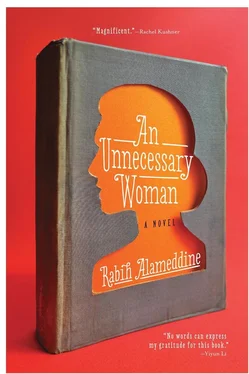I remember incidents, patches of a life — actually, minor patches in a long life, and only when they intersected with mine. I see scenes — images and scenes. I know my mother only in sepia.
Isn’t someone’s life more than a collection of scenes? Isn’t she more than the images I have compiled in my head? These questions may sound rhetorical, but I genuinely don’t know. I can’t tell whether my understanding of her is limited, if I can’t get to know her because of a basic deficiency of mine, or whether this is as far as any human can understand another. The question that really bothers me is whether I know anyone else better than I know my mother. It seems I’ve always asked, with Lear, “Does any here know me?” but never “Do I know any here?” Trying to know another human being seems to me as impossible, and as ridiculous, as trying to grasp a swallow’s shadow.
My mother lived, lives, in a hazy world, not my own.
Other people are hazy phenomena that become corporeal only in my memories.
Although I know the characters of a novel as a collection of scenes as well, as accumulated sentences in my head, I feel I know them better than I do my mother. I fill in the blanks with literary personas better than I do with real people, or maybe I make more of an effort. I know Lolita’s mother better than I do mine, and I must say, I feel her more than I feel my mother. I recognize Rembrandt’s painted face of his mother better than I recognize the real face of mine.
The girl pretends to watch television. It may be just background noise for her, but it isn’t for me. Even though the volume is low, whatever show is on is in a language I don’t understand, possibly Turkish, possibly Hebrew; the voice drifts as if from a distance, not the television, but a far-off land — a male voice, nasal, mingled with faint crackles and New Age string music. Most irritating.
“Turn that off,” I snap angrily, much too angrily.
Surprisingly, the girl does, doesn’t even hesitate.
What I would love right now is a massage, a gentle shoulder rub, anything to untangle my mess of muscles. Not that I’ve had many massages. I don’t submit easily to a stranger’s touch no matter how beneficial it might be, and I can’t afford to pay for self-indulgence in any case. My shoulder muscles have spun themselves into worsted yarn, their numbness and ache locked deep between the blades. I tense my shoulders, count to three, and relax them, an exercise Hannah taught me once. It doesn’t help. It never actually did.
A heavy vehicle causes the window to rattle and the spiderweb dangling from the chandelier to sway. The noise and clatter wake my mother. She opens her left eye first, then her right.
I brace myself. In my head I count the seconds — no, no, someone else counts the seconds in my head: one, two, three. I can’t seem to restrain my thoughts. I count each wrinkle around her eyes without mixing either tally. I shiver as my mind skates from one bleak oblique thought to another. Will she recognize me? Has she ever rocked me in her arms? Does she hate me? Why did she never brush my hair? Has anyone taken her to a doctor recently? The voice of Karita Mattila singing the opening notes of the third of Richard Strauss’s Four Last Songs echoes in my skull. My tongue and the insides of my cheeks feel dry. I note the little red lash marks on the palm of her hand, the earth-toned liver spots on the back of the other. Her eyes focus on me. They seem so very sane.
At the count of twelve, she calls my name quietly. “Aaliya,” she says.
I acknowledge the recognition by smiling and nodding. My hands, still slightly clammy, unclench. I place them on my thighs. My heart beats just a little faster, just a little sharper. Her breathing is calmer, without stertor, less of a struggle than while she slept.
“You’ve changed,” she says in a cotton wad of a voice.
“Yes,” I say. “We all have. I’ve grown older.”
“No,” she interrupts me. “No, your hair is blue.”
Has she ever rocked me in her arms? Hugged me? Whispered baby talk in my ears? I doubt it very much.
“Yes, that,” I say. “Yes, it is blue.”
She looks puzzled, and a little lost. She winces. Her face distorts a bit, as if she found my answer offensive, or maybe incomprehensible, or simply terrifying. I can’t tell. She tries to move farther back into the chair, but that proves physically impossible — she is as far back as the chair will allow.
“It’s all right, Mother,” I say in as comforting a tone as I can muster. “I used coloring shampoo by mistake, more than I should have. It’s not permanent. My hair will recover.”
She looks more confused, breaks eye contact. She regards the ceiling as if she’s watching some ghostly agitation up there. She pushes her hand under the shawl around her shoulders and scratches her arm. Her grimace becomes more pronounced, the corners of her mouth moving farther apart as if they loathe each other.
“Are you all right?” I ask, pointing at her.
I receive no response, verbal or non.
“She doesn’t always answer,” my great-niece says. No longer pretending to ignore my presence, she’s on her knees, leaning over the side of the couch, trying to engage me. “Sometimes I know she’s in pain but she won’t be able to tell me what’s hurting her. Other times she’ll tell me it’s her neck but she means that it used to hurt her years ago. You can’t tell. She’s not good at communicating.”
“Neither am I,” I say. “Mother, are you in pain?”
“She doesn’t talk much, just hums most of the time.” My great-niece underlines her words with an extravagant repertoire of hand gestures and facial expressions. “Old Arabic songs. Hum, hum, hum. Not Oum Kalthoum, not Fairuz. You’ll never guess.”
“Asmahan,” I say.
“You guessed!” She sounds ecstatic, unable to control her glee. “Of course you’d know. You’re her daughter. I try to ask her who Asmahan is but she keeps mumbling, ‘They killed her, they killed her.’ Then she starts humming again. Nonstop humming, always music in the house. It’s like we have our own canary.”
At first I feel hurt and want to object. That’s an awful thing to say about someone. In a short story by the fabulous fabulist Sławomir Mroz˙ek, a narrator attends a party at which the entertainment is provided by the household pet, a caged liberal, a humanist who has been reduced to nothing more than a singer of quaint revolutionary songs. My mother doesn’t know any revolutionary songs, but she does Asmahan’s. So I also feel a tickle of happiness, a flicker of joy, unrelated to the fact that I guessed the singer; that my mother hums Asmahan’s songs makes me feel good. That my mother likes the singer who married and divorced three or four men, the scandalous actress who left her husband and family to pursue her career — an illustrious, titled family no less — allows my own heart to sing.
“Do you know who she is?” asks my great-niece.
“Who?” I ask.
“The singer,” the girl says. “Do you know who the singer is?”
“Of course.”
“Well?” she says.
She waits for me to say something. I am more experienced in waiting.
“Who is she?” my great-niece asks.
“You have that wonderful computer next to you. Look her up.”
My mother whimpers, and a frisson of fear courses through me. Will she?
“Are you all right, Mother?” I ask.
She no longer seems to recognize me, but she quiets. I can’t read her, can’t tell whether she’s in agony or simply distracted. She seems alone and fearful, her mind the only place in which she can hide. Her mouth is never still, moves from grimace to lazy smile to irritation in a matter of seconds, back and forth, sideways, up and down.
Читать дальше












